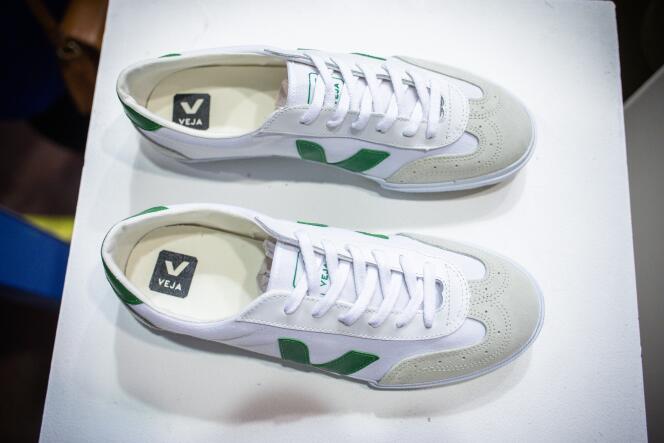


Veja now has part of its collection manufactured in Portugal. After using only Brazilian subcontractors for 20 years, since its creation in 2004, the French sneaker brand has turned to a European manufacturer for the production of one of its models, the V90.
Like many other European shoemakers, including Clarks, Weston for some of its sneakers, Anthology and Bobbies, the company has chosen Portugal, a country whose footwear industry boasts over 2,000 factories and employs 40,000 people. In "great secrecy since November 2022," the brand has been "testing" the production facilities and skills of Samba Footwear, a manufacturer based in the Porto region (west of Portugal), "on all the models produced in Brazil," explained Sébastien Kopp, its co-founder and co-CEO.
One year on, and with 100,000 pairs produced in the ultramodern factory, the test has proved conclusive. "The quality is spot on," observed Kopp. Although manufacturing costs have risen by 12% since the start of the contract, the retailer, whose sales volumes reached 3.5 million pairs in 2023, has decided to expand production in Portugal. This range of "made in Portugal" Veja V90s will be reserved for its European customers through around 100 department stores and boutiques. American and South American outlets that distribute Veja will only have access to the Brazilian-made ranges.
Producing this range in France would have been impossible, explained Kopp, because "the industrial facilities" needed to manufacture an entire pair of sneakers "don't exist there." In his opinion, European production offers several advantages. "It enables us to restock supplies, source cotton grown in Africa and use recycled and environmental materials and leather produced in Europe."
Until now, the brand had stuck to its alternative model, using organic cotton and wild rubber purchased in Brazil and Peru from independent producers and at a higher rate than raw material prices. Clearly, using them to then ship shoes tens of thousands of kilometers to Porto was not in line with Veja's environmental policy.
However, the production of these shoes in Portugal is unlikely to reduce the company's environmental footprint compared to manufacturing in Brazil. Admittedly, the transportation figures from Brazil, which account for 16% to 18% of its carbon footprint, will change. But delivery from Portugal to points of sale will be by truck, a more carbon-intensive mode of transport than sea freight, Kopp pointed out.
You have 30% of this article left to read. The rest is for subscribers only.
